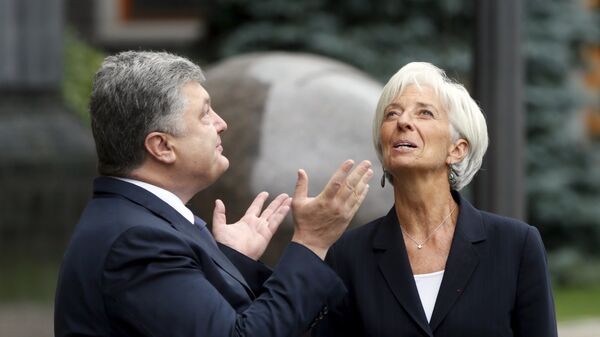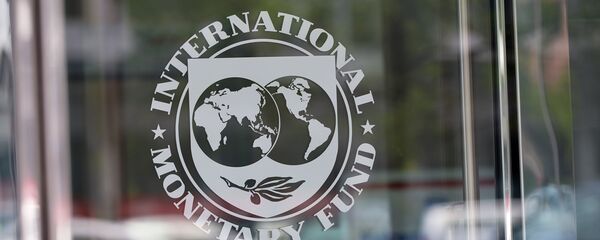The interview came after the International Monetary Fund (IMF)'s mission chief for Ukraine, Ron Van Rooden, said that Ukraine's $3 billion debt to Russia will be taken into consideration when the IMF is making its decision on the next tranche to Kiev.
The $3 billion loan was secured by the government of then-President Viktor Yanukovych in late 2013. Moscow has repeatedly stated that Kiev's inability to pay back the debt means a default thus rendering Ukraine unable to receive IMF help.
The IMF will consider Ukraine's debt to Russia in the release of tranches https://t.co/8XWmjOFmC0 pic.twitter.com/7mCf6TJdKK #news #Russia
— Rus to En Fr Es News (@Rus_Eng_News) 15 декабря 2016 г.
The IMF, for its part, altered its policy on defaulting debtors in late 2015, allowing the fund to continue lending to countries that have partially defaulted on their sovereign debt. Russia has filed a lawsuit against Ukraine over the issue.
Speaking to Sputnik, Kovalev described Ron Van Rooden's statement as a transparent signal toward Ukraine.
"I think the IMF's statement indicates that the West (the US, Western Europe and international organizations) is reviewing its stance on Ukraine.They realize the fact that the reforms initiated by Ukrainian authorities are not effective and that these reforms are stalled. No one wants to continue to keep Ukraine and pay the money which is, as a rule, immediately stolen,” he said.
According to him, Ukraine will have to change its position on its hefty debt to Russia because "the IMF is most likely to return to its original practice stipulating that the organization does not allocate tranches to the countries that have the due-to-be-paid debts and do not recognize these debts, trying to challenge them, as Ukraine does.
Kovalev pointed out that Kiev should not expect financial assistance from the IMF.
"The IMF will not fully reimburse the debt of Ukraine to Russia. I think Kiev will finally have to repay the debt all by itself without hoping for a large-scale assistance from the IMF," he said.
Ron Van Rooden has, meanwhile, said that it will take Ukraine a generation to catch up with the Central European economy even if the GDP growth rate increases up to five percent.
He added that the IMF wants to see the acceleration of reforms in Ukraine required for receiving the fund's financial aid.
On March 11, 2015, the IMF approved a four-year program of financial aid to Ukraine, which stipulates a $17.5-billion loan to be paid out in a number of installments over the next four years and originally open for review on a quarterly basis.
Ukraine heavily relies on foreign aid to support its economy and to pay debts amid the ongoing armed conflict with independence supporters in the country's southeast.
Never miss a story again — sign up to our Telegram channel and we'll keep you up to speed!




